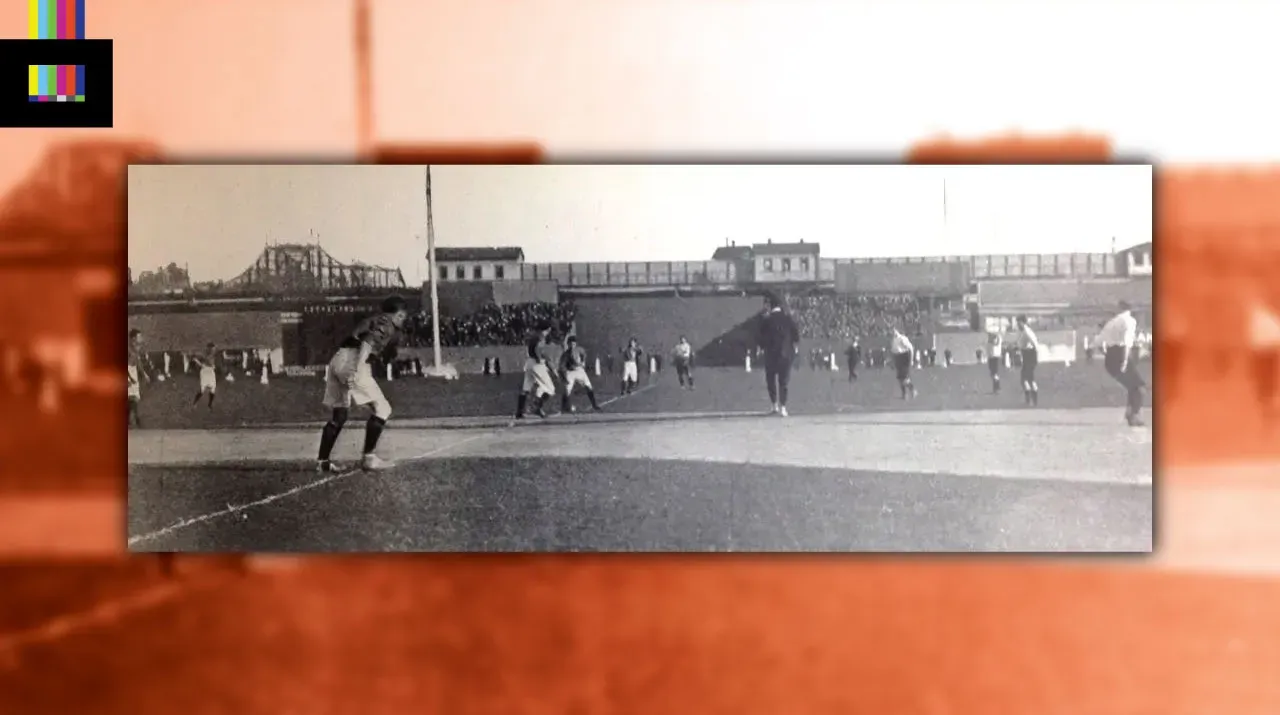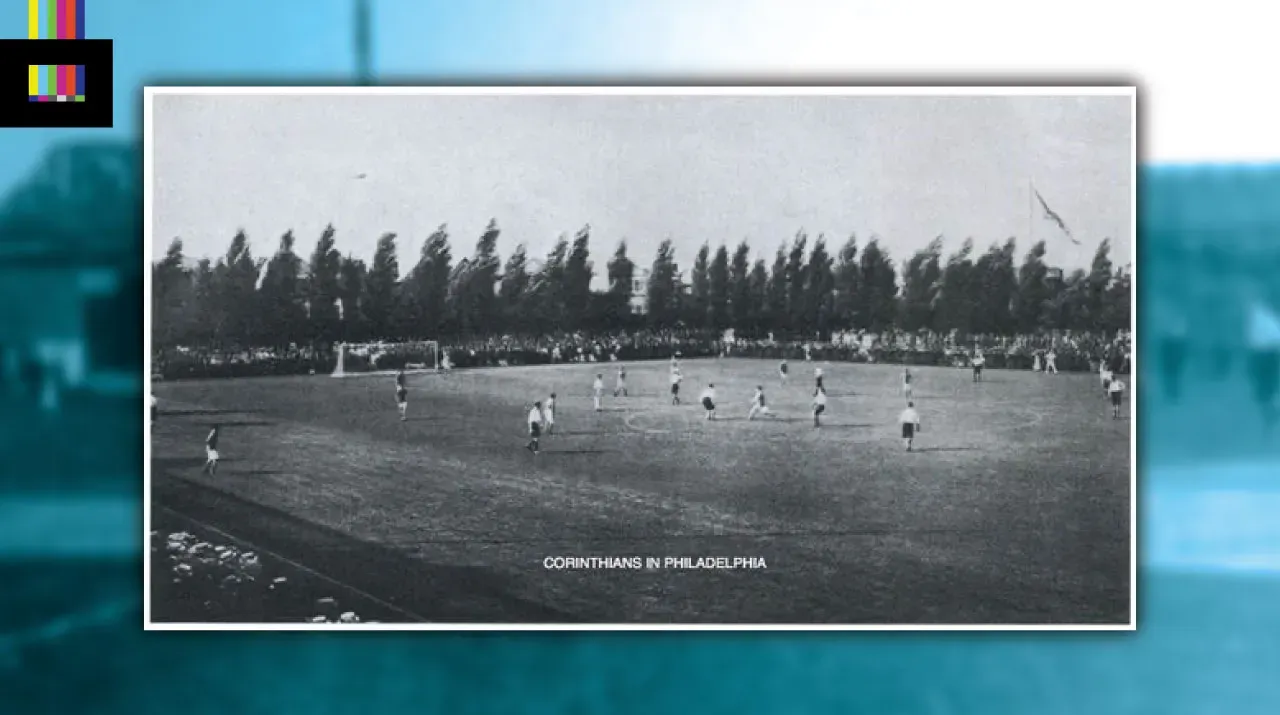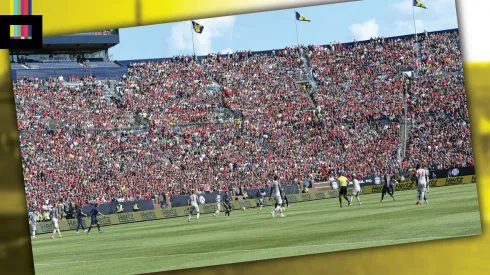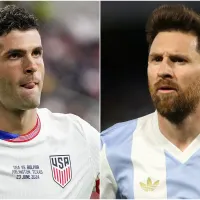Soccer friendlies in the US have become an annual tradition in the summer. But it’s not a new phenomenon. For almost as long as the sport has been played in this country, clubs from overseas have been visiting to put on a show for American fans.
One of the earliest occurrences was a team of English amateurs who toured under the name Pilgrims in 1905. The side played seventeen matches, including a 7-1 victory over a local all-star team at New York’s iconic Polo Grounds.

The Pilgrims came back in 1909, boasting players who competed for the likes of Sunderland, Arsenal, Fulham and other clubs back home. The Pilgrims’ tours helped with a modest popularity boost in collegiate soccer at the time.
Corinthian FC from London were another early notable side to travel to the US (and elsewhere). The amateur side was actually the namesake of now-famous Brazilian club Corinthians. August-September 1906 saw them visit the US and Canada. Only Fall River, in the second-to-last game of the seventeen-game tour, were able to defeat the visitors.
In 1911 Corinthians returned stateside, once again routing the competition, winning nineteen, with just one draw and one loss on the tour.

Immigrants turn out for the game
For much of the 20th century, soccer survived and thrived in ethnic population centers. When clubs from abroad would visit, these communities largely embraced the opportunity to see the teams from their home countries.
One example was in 1926, when Hakoah Vienna of Austria toured the US. The all-Jewish side drew 46,000 fans to the Polo Grounds in New York. This would be a record attendance for soccer in the USA until Pelé’s Cosmos would break it 50 years later.
Rangers of Scotland also visited in 1928, pulling in large crowds in Philadelphia, New York, and Fall River (against the mythic Marksmen, one of the US’s most successful early clubs). Further stops included Pittsburgh, Detroit, Boston and a finale at Ebbets Field in Brooklyn.
Friendlies in disguise
Fast-forwarding to the 1960s, American professional soccer was looking for a jump start. The original American Soccer League, that was modestly successful in the 1920s, had faltered in the 30s leaving little high-level soccer in the US.
In 1967, the United Soccer Association kicked off, alongside the rival National Professional Soccer League. Unlike the NPSL, the USA was officially sanctioned by US Soccer and FIFA. Also unlike the NPSL, the USA used entire imported teams to represent its franchises. Teams such as the Los Angeles Wolves, Cleveland Stokers, Toronto City, and Dallas Tornado were actually Wolverhampton, Stoke City, Hibernian, and Dundee United in different uniforms. The entire 1967 USA season was effectively offseason training for twelve Irish, Italian, English, Scottish, Dutch, Argentine and Brazilian clubs.
In 1968, the two rival leagues would merge to form the North American Soccer League. The 1969 NASL season also saw some imported teams, with Wolves and Dundee United joined this time by West Ham (Baltimore), Aston Villa (Atlanta), and Kilmarnock (St. Louis).
In the subsequent decades, one-off events, like Pelé’s testimonial that pit the Cosmos against Santos, and competitions such as the Trans-Atlantic Challenge Cup and Sunshine International Series, continued to bring clubs from all over the world to America. The huge clubs we know today like Barcelona, Manchester City, and Celtic began to appear more frequently on US shores during this time period.
Today’s big-money game
In the 21st century, the summer spectacle has reached new heights.
Both clubs and national teams frequently tour the US. They often pack huge American football stadiums (at sometimes ludicrous ticket prices). The 2010s saw the return of pseudo-competitions as opposed to one-off games. Window-dressing to add meaning to offseason training, events such as the World Football Challenge, International Champions Cup, and Florida Cup have proven popular. The year 2014 saw the largest ever crowd for a soccer game in the USA, 109,318 fans at Michigan’s “Big House” for Manchester United vs Real Madrid.
Now the leagues themselves are getting in on the action. Both LaLiga and the Premier League are promoting their own summer events featuring their clubs in 2023. Meanwhile, MLS and Liga MX have launched the Leagues Cup, a summer tournament between both leagues.
With the international game more popular than ever in the US, these games won’t be going anywhere anytime soon.
For a rundown of all the soccer friendlies in the US this summer, including how to score tickets, check out our summer friendlies schedule page.
Photos: Imago / Corinthian-Casuals FC & New-York Historical Society















